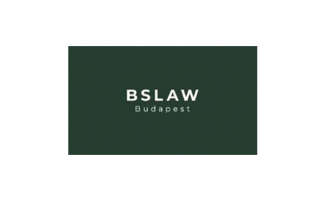Profile: An Overview of the Firm
At the heart of Saudi Arabia’s evolving commercial landscape stands ELaw Boutique Law Firm, a premier boutique law firm renowned for its specialisation in commercial and corporate law. Our firm has consistently demonstrated exceptional proficiency in navigating the intricate legal intricacies associated with these sectors, empowering our clients to achieve their strategic objectives with minimal legal impediments. We pride ourselves on providing personalised, client-centred legal solutions that are both innovative and practical.
Foundation and core values
ELaw was founded with the vision of offering unparalleled legal service through a focus on excellence, integrity, and innovation. Our core values are deeply rooted in these principles, which guide our day-to-day operations and long-term goals. We believe that every client deserves a tailored approach that addresses their unique needs and circumstances. Our attorneys work closely with clients to ensure that every legal strategy is bespoke, multifaceted, and effective.
Expertise in commercial and corporate law
Our firm’s expertise in commercial and corporate law is unmatched. We understand the complexities of the corporate world and provide strategic advice that helps our clients navigate through mergers and acquisitions, joint ventures, corporate governance, and regulatory compliance. At ELaw, we believe that informed decision-making is the cornerstone of business success. Our attorneys excel at anticipating legal challenges and providing solutions that align with our clients’ business objectives.
Expansion into technology law
In recent years, we have expanded our expertise into the rapidly advancing field of technology law. This includes fintech, regtech, and other emerging technological sectors, where we aim to be at the forefront of legal innovation. The digital revolution calls for a new breed of legal experts, and ELaw is dedicated to meeting this demand. We assist tech companies in dealing with regulatory compliance, intellectual property rights, and data protection, among other key legal issues. Our proactive approach ensures that our clients remain compliant in an ever-changing regulatory environment.
Client-centred approach
What sets ELaw apart is our client-centred approach. We believe that the relationship between a law firm and its clients should be based on trust, communication, and mutual respect. Our attorneys take the time to understand the business models, goals, and challenges of our clients, enabling us to offer solutions that are both innovative and practical. Whether advising a startup or an established corporation, our focus is always on providing value and delivering results that exceed expectations.
Conclusion
ELaw Boutique Law Firm is more than just a legal service provider; we are a trusted partner committed to the success and sustainability of our clients’ businesses. Our comprehensive expertise in commercial, corporate, and technology law, combined with our client-centric approach, positions us as leaders in the legal field. As we continue to evolve and expand, our core mission remains the same: to empower our clients through exceptional legal counsel, fostering growth and innovation in an ever-changing world.
Thought Leadership: Legal Developments in Saudi Arabia
Saudi Arabia has been witnessing transformative legal developments over the past decade, reflecting its Vision 2030 agenda aimed at diversifying the economy and reducing dependency on oil. These changes encompass a wide range of legislative reforms, judicial advancements, and regulatory updates. As thought leaders in the legal domain, ELaw Boutique Law Firm is at the forefront of these shifts, helping clients navigate the evolving landscape with confidence and agility.
Technology law: paving the way for innovation
One of the most significant areas of development has been technology law. The Saudi government recognises the importance of creating a robust legal framework to support the burgeoning fintech and regtech industries. Recent regulations have focused on ensuring cyber security, protecting consumer data, and fostering a conducive environment for innovation. These measures are pivotal in creating a legal ecosystem that supports technological advancement while safeguarding consumer interests.
For instance, the introduction of the Saudi Central Bank (SAMA)’s Regulatory Sandbox exemplifies the Kingdom’s commitment to nurturing fintech innovations. This initiative allows companies to test new technologies in a controlled environment, balancing innovation with consumer protection. Through this sandbox, fintech entities can experiment with novel solutions under regulatory oversight, thereby accelerating the development of cutting-edge financial technologies.
Additionally, the Capital Market Authority (CMA) has implemented several regulations aimed at facilitating fintech growth, including equity crowdfunding regulations and others in financial transactions. These regulations not only provide a clear legal framework for fintech operations but also encourage transparency and accountability, essential for building investor trust and market integrity.
Corporate governance: enhancing transparency and compliance
Another critical development is the overhaul of corporate governance standards. News about the imminent release of guidelines stipulates stricter compliance and transparency measures for certain activities, aiming to enhance investor confidence and attract foreign investments in these sectors. These changes are particularly relevant for businesses looking to establish or expand their operations in Saudi Arabia. By adhering to these enhanced governance standards, companies can better manage risks, improve strategic decision-making, and strengthen their market position.
The rules will require greater disclosure of financial and operational information, along with a clear delineation of responsibilities among board members and executives. This move aims to align Saudi corporate governance practices with international standards, thereby making the Kingdom a more attractive destination for foreign investors. Effective governance practices not only mitigate risks but also contribute to sustainable business growth.
Judicial advancements: streamlining dispute resolution
Judicial reforms have also been instrumental in supporting Saudi Arabia’s Vision 2030. These reforms focus on improving the efficiency and transparency of the legal system, making it easier and faster to resolve commercial disputes. This is crucial for fostering a business-friendly environment where legal ambiguities do not hinder commercial activities. The establishment of specialised commercial courts and the digitisation of legal processes are notable strides towards achieving this goal.
Regulatory updates: adapting to global standards
Regulatory updates in various sectors have been geared towards adapting global best practices to the Saudi context. This includes aligning local laws with international standards in areas such as anti-money laundering (AML), combating the financing of terrorism (CFT), and intellectual property rights (IPR). These efforts not only enhance compliance but also ensure that Saudi businesses remain competitive on the global stage.
Conclusion
Saudi Arabia is well on its way to becoming a hub for technological innovation and commercial growth, thanks to these dynamic legal reforms. At ELaw Boutique Law Firm, we are committed to staying abreast of these changes, ensuring our clients are well-prepared to navigate the evolving legal landscape. Our expertise in commercial, corporate, and technology law positions us as the ideal partner for businesses aiming to thrive in this rapidly transforming market. By leveraging our deep understanding of Saudi Arabian legal frameworks, we help our clients achieve their strategic objectives with confidence and agility.
Q&A: Interview with Ethar Aldaej
How has ELaw adapted to the rapid legal changes in Saudi Arabia?
We have adopted a proactive approach to legal changes, continuously updating our knowledge base and adapting our strategies to align with the latest regulations. Our team frequently engages in professional development and collaborates with regulatory bodies to ensure we provide the most current and effective legal advice.
What sets your firm apart in the fields of commercial and corporate law?
Our firm’s unique blend of local knowledge and international perspective sets us apart. We offer tailored legal solutions that cater specifically to our clients’ needs, ensuring they can operate seamlessly within the local legal framework while pursuing their strategic goals.
Can you share some insights on the future of fintech and regtech in Saudi Arabia?
The future of fintech and regtech in Saudi Arabia is incredibly promising. With ongoing regulatory support and a growing interest from the private sector, these industries are poised for significant growth. Our firm is ideally positioned to guide clients through this dynamic landscape, helping them innovate while remaining compliant.
How does ELaw incorporate technology and innovation in its legal practice?
We leverage cutting-edge technology and innovative tools to enhance our legal services. From AI-driven research to digital client management systems, we integrate advanced solutions to increase efficiency, accuracy, and client satisfaction. Our commitment to technological advancement ensures we stay ahead in the ever-evolving legal landscape.
What are the main challenges that ELaw faces in the current legal environment?
The main challenges include staying ahead of rapid legal changes, managing the complexities of cross-border transactions, and ensuring data security in a digital age. We address these challenges through continual learning, strategic partnerships, and robust cyber security measures, enabling us to provide comprehensive and secure legal services.
How does ELaw support the professional development of its team?
We prioritise the growth and development of our team by offering regular training sessions, access to industry conferences, and opportunities for further education. Additionally, we foster a collaborative environment where knowledge sharing and continuous learning are encouraged, ensuring our team remains at the forefront of legal expertise.
In what ways does ELaw contribute to the local community and legal education?
ELaw actively participates in community outreach programmes, pro bono work, and legal education initiatives. We conduct workshops, seminars, and mentorship programmes to support local legal education and awareness. By giving back to the community, we aim to contribute to the overall growth and development of the legal profession in Saudi Arabia.
Can you describe a recent successful case or project that ELaw worked on?
Recently, we assisted a major international corporation in navigating complex regulatory requirements to establish operations in Saudi Arabia. Our team provided comprehensive legal support, from initial consultation to final implementation, ensuring compliance with local laws and achieving the client’s strategic objectives. This successful project underscores our expertise in handling intricate legal matters and delivering exceptional client results.
What are ELaw’s goals for the next five years?
Over the next five years, we aim to expand our services, enhance our technological capabilities, and strengthen our international partnerships. By focusing on these goals, we plan to solidify our position as a leading legal firm in Saudi Arabia and continue to provide unparalleled service to our clients.
How does ELaw approach client relationships and customer service?
At ELaw, we prioritise building strong, lasting relationships with our clients. We achieve this by providing personalised service, understanding each client’s unique needs, and maintaining transparent communication throughout our engagement. Our client-centric approach ensures that we deliver not only legal solutions but also peace of mind and confidence in our services.

















